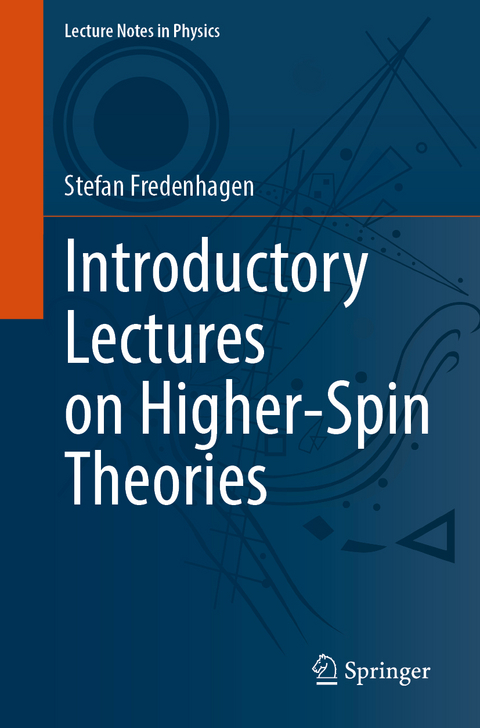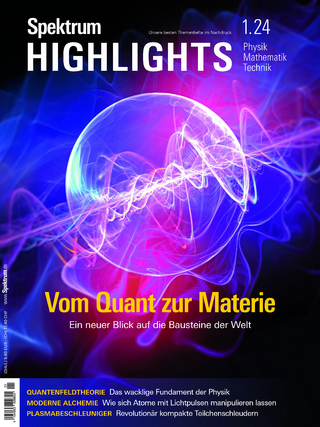
Introductory Lectures on Higher-Spin Theories
Springer International Publishing (Verlag)
978-3-031-59655-1 (ISBN)
The book offers a pedagogical introduction to higher-spin gauge theories. These theories build upon fundamental gauge theories that are crucial for understanding core interactions. Electromagnetism and nuclear forces are associated with gauge fields of spin 1, while gravity can be conceptualized as a gauge theory of spin 2. This prompts the intriguing inquiry: do higher-spin gauge theories exist? Such theories would extend gravity, incorporating massless gauge fields of spins higher than two. They appear to bear connections to string theory and offer a captivating framework for exploring gravity and aspects of quantum gravity.
The book initiates with a primer offering a comprehensive discussion on higher spins, delving into the challenges of establishing coherent interactions. It then explores methodologies to surmount these challenges within three-dimensional space-time. Furthermore, it investigates the emergence of asymptotic symmetry algebras, establishing links to a holographic dual conformal theory. The final chapter introduces Vasiliev's approach to higher-spin gauge theory in four dimensions.
Designed for advanced students and young researchers in theoretical physics and mathematical physics, the book aims to elucidate fundamental ideas, concepts, and tools underpinning higher-spin gauge theories. The inclusion of numerous exercises complements and illustrates the content, preparing readers for engagement with the subject's original literature and ongoing developments. To fully engage with the book's arguments, a prerequisite understanding of field theories and conventional gauge theories, including gravity, is assumed.
Stefan Fredenhagen is a theoretical/mathematical physicist and a professor at the University of Vienna (Austria). He completed his undergraduate studies at the University of Hamburg in 1999. As a graduate student, he conducted research at the Max-Planck Institute for Gravitational Physics in Potsdam (Germany) and earned his PhD in 2002 from Humboldt University Berlin (Germany), for which he was awarded the Otto-Hahn Medal in 2003.
Following his doctoral studies, he held postdoctoral positions at the Ecole Polytechnique in Palaiseau (France), the Institut des Hautes Etudes Scientifiques in Bures-sur-Yvette (France), and the Federal Institute of Technology (ETH) Zurich (Switzerland). He served as a junior staff member at the Max-Planck Institute for Gravitational Physics starting in 2006. Subsequently, he held a guest professorship at Humboldt University in Berlin before joining the University of Vienna as a professor of mathematical physics in 2016.
His research focuses on the theoretical and mathematical aspects of quantum field theory, gravity, and string theory, particularly emphasizing higher-spin gravity theories and conformal quantum field theories.
Preface.- From Higher Spins to Strings: A Primer.- Higher-spin gauge theories in three space-time dimensions.- Elements of Vasiliev theory.
| Erscheinungsdatum | 17.09.2024 |
|---|---|
| Reihe/Serie | Lecture Notes in Physics |
| Zusatzinfo | XI, 456 p. 7 illus., 3 illus. in color. |
| Verlagsort | Cham |
| Sprache | englisch |
| Maße | 155 x 235 mm |
| Themenwelt | Naturwissenschaften ► Physik / Astronomie ► Hochenergiephysik / Teilchenphysik |
| Naturwissenschaften ► Physik / Astronomie ► Theoretische Physik | |
| Schlagworte | AdS/CFT correspondence and dualities • beyond Planck scale physics • Fronsdal formulation of higher-spin fields • higher-spin algebras • Higher-spin Gravity • massless gauge fields in gravity • Vasiliev theory and equations |
| ISBN-10 | 3-031-59655-2 / 3031596552 |
| ISBN-13 | 978-3-031-59655-1 / 9783031596551 |
| Zustand | Neuware |
| Haben Sie eine Frage zum Produkt? |
aus dem Bereich


